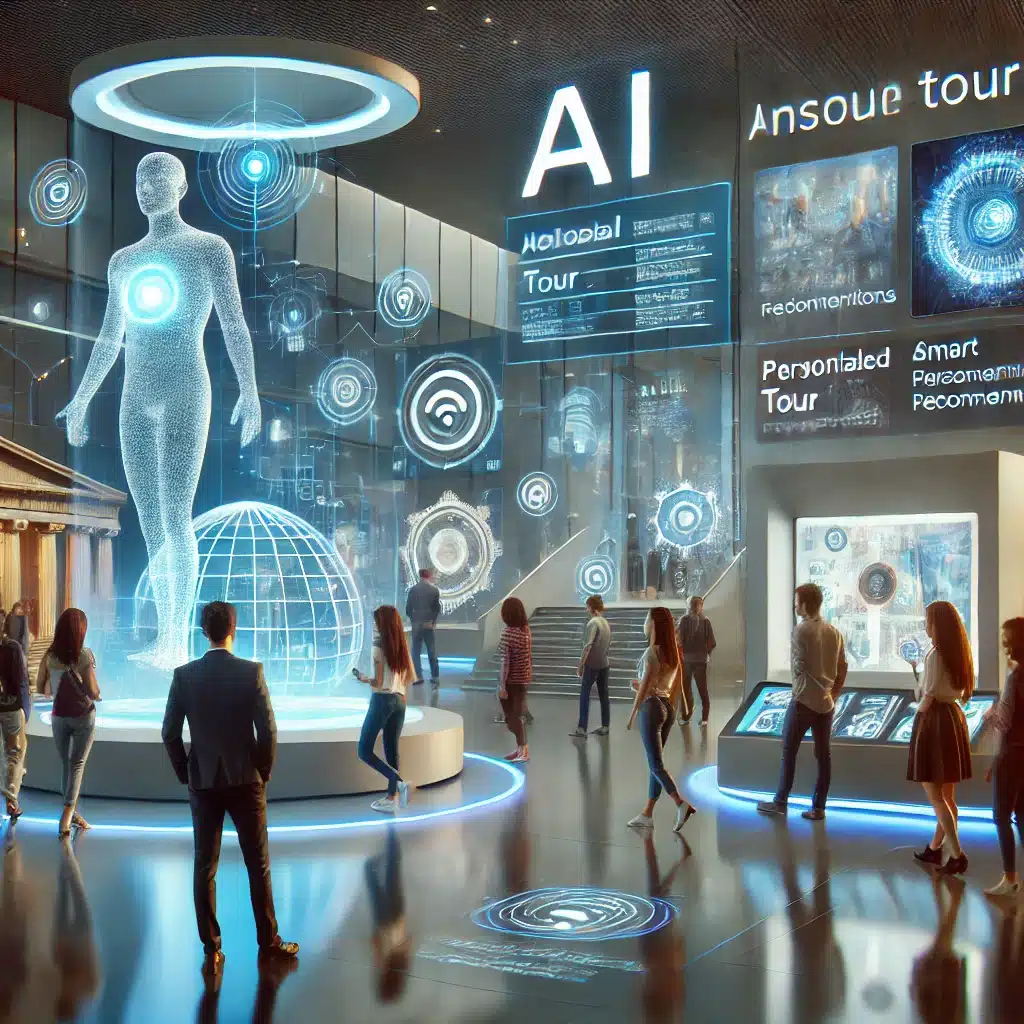In the fast-paced world of modern business, staying ahead of customer expectations is no small task. Companies must evolve their strategies and tools to provide personalized, efficient, and impactful customer interactions. This challenge has led to a revolutionary pairing: Artificial Intelligence (AI) and Customer Relationship Management (CRM) systems. Together, they redefine how businesses engage with customers, manage data, and streamline sales processes.
By integrating AI with CRM, companies can automate routine tasks, unlock predictive insights, and enhance the customer experience. This article explores the transformational role of AI-powered CRM systems, their benefits for B2B sales, and the future trends reshaping this space.
How Does AI with CRM Enhance Business Operations?
What are the benefits of AI-powered CRM platforms?
AI-powered CRM platforms bring a wealth of benefits, revolutionizing business operations and customer management:
- Automation: Eliminates repetitive tasks like data entry and follow-ups, saving time for high-value activities.
- Predictive Insights: Provides sales teams with actionable forecasts, helping them prioritize leads and tailor strategies.
- Personalized Campaigns: Improves customer segmentation and enables targeted marketing efforts based on individual behaviors.
- Optimized Customer Service: Chatbots and virtual assistants deliver instant support, enhancing responsiveness.
These features enable sales teams to focus on relationship-building and closing deals, driving superior performance.
How AI with CRM Automates Business Processes?
AI-driven automation streamlines CRM tools by handling routine yet critical tasks with precision:
- Lead Scoring: Automatically evaluates and prioritizes leads based on engagement and potential.
- Follow-Up Reminders: Ensures no opportunity is missed with automated scheduling and notifications.
- Chatbots: Manages customer queries instantly, providing consistent and accurate responses.
- Forecasting: Analyzes data trends to predict sales outcomes, enabling better resource allocation.
With AI-driven automation, businesses can reduce manual effort, maintain accuracy, and ensure seamless customer interactions.
Why AI with CRM is Essential for Customer Interaction?
AI enables businesses to deliver hyper-personalized and timely customer interactions:
- Behavior Analysis: Tracks customer preferences to offer tailored recommendations.
- Efficient Support: AI chatbots resolve queries quickly, enhancing customer satisfaction.
- Optimal Communication Timing: AI identifies the best times and platforms to engage, ensuring relevance.
By creating meaningful and customized interactions, AI fosters loyalty and builds long-term relationships.
How Can AI Transform the Sales Process?
What insights can AI provide to sales teams?
AI provides sales teams with data-driven insights that optimize their strategies:
- Customer Behavior: Identifies trends and predicts future needs based on historical data.
- Lead Prioritization: Highlights high-potential leads to maximize conversion rates.
- Cross-Selling and Upselling Opportunities: Suggests products or services likely to interest customers.
These insights empower teams to make informed decisions, resulting in improved efficiency and revenue growth.
How does artificial intelligence streamline the sales process?
Artificial intelligence streamlines the sales process by automating routine tasks and providing sales reps with the tools they need to work more effectively. AI can automate lead generation, qualification, and scoring, ensuring that only the most promising leads are pursued. It also assists in drafting personalized emails, scheduling follow-ups, and managing customer information. Additionally, AI-driven tools like predictive analytics can forecast sales outcomes and optimize sales strategies in real time. By taking over time-consuming administrative tasks and providing actionable insights, AI allows sales teams to focus on building relationships and closing deals.
Key Areas Where AI with CRM Boosts Sales Performance
AI can boost sales performance in several key areas including lead generation, customer engagement, and sales forecasting. In lead generation, AI identifies high-quality prospects by analyzing data from various sources such as social media, website interactions, and historical sales data. For customer engagement, AI personalizes communication and provides timely responses through chatbots and automated emails. In sales forecasting, AI’s predictive analytics offer accurate predictions of sales trends and outcomes, enabling better planning and resource allocation. By enhancing these areas, AI helps companies achieve higher conversion rates, increased efficiency, and superior sales performance.

What is the Impact of AI Integration on B2B Sales?
How does AI affect lead generation in B2B markets?
In B2B markets, AI significantly enhances lead generation by identifying and targeting the most promising prospects. AI algorithms sift through extensive datasets, including company profiles, industry trends, and behavioral data, to pinpoint potential leads that align with the business’s ideal customer profile. Additionally, AI can automate outreach efforts, ensuring timely and personalized communication with these leads. By leveraging AI, B2B sales teams can focus their efforts on high-quality leads, reducing the time and cost associated with traditional lead generation methods and improving overall conversion rates.
How can CRM platforms leverage AI to improve conversion rates?
CRM platforms can leverage AI to improve conversion rates by providing actionable insights and automating critical aspects of the sales process. AI-powered CRMs analyze customer behavior, preferences, and engagement history to recommend the best approach for each lead. This level of personalization increases the likelihood of converting leads into customers. Moreover, AI can optimize follow-up schedules and prioritize tasks based on potential value, ensuring that sales teams focus on the most impactful activities. By aligning sales strategies with data-driven insights, AI-driven CRM platforms enhance conversion rates and drive superior sales performance.
What are the challenges of integrating AI in B2B sales?
Integrating AI in B2B sales presents several challenges, including data quality, integration complexity, and user adoption. High-quality data is essential for AI to deliver accurate insights, but many organizations struggle with fragmented or incomplete datasets. Moreover, integrating AI with existing CRM systems and workflows can be complex and require significant technical expertise. Additionally, user adoption is crucial for realizing the benefits of AI, but sales teams may be resistant to change or require training to utilize AI tools effectively. Addressing these challenges requires a strategic approach that includes data management, seamless integration, and comprehensive training programs.
How to Leverage AI in CRM for Sales Team Efficiency?
What AI-driven tools can enhance sales excellence?
Several AI-driven tools can enhance sales excellence by improving efficiency and effectiveness in various aspects of the sales process. Predictive analytics tools help sales teams forecast future sales and identify high-potential leads. AI-powered CRM platforms provide automated workflows and personalized insights, enabling sales reps to focus on building relationships and closing deals. Virtual assistants and chatbots streamline customer service and support, addressing inquiries promptly and accurately. Additionally, AI-driven sales enablement tools offer training and performance analytics to help sales teams continuously improve their skills and strategies.
How does automation simplify tasks for the sales team?
Automation simplifies tasks for the sales team by taking over repetitive and time-consuming activities, allowing sales reps to concentrate on high-value tasks. Automated lead scoring evaluates and prioritizes leads based on predefined criteria, ensuring that sales teams focus on prospects with the highest potential. Automated email campaigns and follow-up reminders maintain consistent communication with leads and customers, reducing the risk of missed opportunities. Additionally, CRM automation handles data entry and updates, ensuring that customer information is accurate and up-to-date. By alleviating administrative burdens, automation enhances productivity and efficiency within the sales team.
What is the role of AI in boosting customer satisfaction?
AI plays a significant role in boosting customer satisfaction by enabling personalized and efficient customer interactions. AI-powered CRM systems analyze customer data to deliver tailored experiences that meet individual preferences and needs. Chatbots and virtual assistants provide instant support, resolving issues and answering queries promptly. AI also helps businesses anticipate customer needs and proactively address potential concerns, enhancing the overall customer experience. By ensuring that each interaction is relevant and timely, AI fosters stronger relationships and increased customer loyalty, ultimately driving higher satisfaction levels.
Future Trends in AI-Driven CRM Systems
How will AI-driven sales strategies evolve?
AI-driven sales strategies are expected to become more precise and impactful:
- Advanced Analytics: Greater use of machine learning for insights.
- Natural Language Processing: Enables more conversational interactions.
- Real-Time Adjustments: AI will refine strategies dynamically based on live data.
These advancements will make sales strategies more agile and customer-centric.
What advancements in AI-powered CRM tools are anticipated?
AI-powered CRM tools will see enhancements in areas like:
- Seamless Integrations: Better compatibility with other systems.
- Deeper Insights: More granular analysis of customer behavior.
- Expanded Automation: Coverage of more complex tasks across the sales funnel.
These innovations will further empower businesses to deliver exceptional service and performance.
Conclusion
The integration of AI with CRM systems is a transformative force in the world of sales. By automating tasks, personalizing interactions, and delivering actionable insights, AI-powered CRMs enable businesses to optimize processes, improve customer satisfaction, and achieve superior sales performance. As AI technology continues to evolve, companies that embrace this integration will be better positioned to thrive in an increasingly competitive market.
FAQs
1. What is the role of AI in CRM?
AI enhances CRM platforms by automating tasks, analyzing customer data, and providing actionable insights. It personalizes customer interactions, predicts sales trends, and streamlines processes like lead scoring, follow-ups, and customer segmentation. By integrating AI, CRM systems become smarter, enabling sales teams to focus on building relationships and closing deals instead of managing administrative tasks.
2. How does AI improve customer interactions in CRM?
AI-powered CRM systems analyze customer behavior, preferences, and engagement history to deliver highly personalized experiences. AI chatbots and virtual assistants provide instant responses, resolving customer queries efficiently. Additionally, AI predicts the best times and channels for communication, ensuring that interactions are both timely and relevant. This personalized approach enhances customer satisfaction and builds loyalty.
3. How does AI-driven automation improve CRM tools?
AI-driven automation streamlines CRM tools by taking over repetitive tasks such as updating customer data, scheduling follow-ups, and managing workflows. For example, AI can automate lead scoring to prioritize prospects based on their likelihood of conversion. This ensures consistency, reduces errors, and frees up sales teams to focus on engaging with customers and closing deals.
4. How does AI help with lead generation in CRM?
AI simplifies lead generation by analyzing large datasets to identify potential prospects that align with a company’s ideal customer profile. It automates outreach efforts, such as sending personalized emails or scheduling follow-ups, ensuring that leads are nurtured effectively. AI also predicts which leads are most likely to convert, enabling sales teams to focus on high-quality opportunities.



